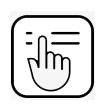
Signs and symptoms of addiction vary according to the the individual and the substance they are addicted to.
Frequent intoxication
Hangover or illness
Paraphernalia related to substance abuse
Behavioral changes
Social dysfunction

Addiction therapy for drug addiction
The Substance Abuse and Mental Health Services Administration (SAMHSA) estimates that around 24% of people use illicit drugs every year. Although usage does not always mean addiction, this number is still staggering. Drug addiction can lead to physical side effects up to death, and mental health problems such as anxiety, depression, and suicidal ideations. Drugs can include prescription medications, illegal drugs such as heroin, and some over-the-counter medications.
Find Your Addiction Therapist Nearby
Addiction Therapy for Psychological Addiction
Some things don't need to have addictive chemicals for them to become addicting. Studies have shown that we can become psychologically addicted to things bad for our health just as we can become physically addicted to things. Psychological addictions may occur in tangent or separately from a physical addiction, and can influence stimulants, marijuana, and hallucinogenics. These drugs have a smaller chemical impact on us but a larger psychological one; people keep coming back to them for the feeling or high they get while using.
Find Your Addiction Therapist Nearby
Addiction Therapy for Food Addiction
Food addiction is a growing concern, with one study estimating around 20% of people experiencing some level of food addictions. Food addiction is part physical addiction—our body craves fats and sugars—and part psychological addiction—we are addicted to the feeling and relief eating brings. It is characterized as a preoccupation of food, an inability to control the amount of food consumed, and a strong urge to eat in response to cravings or triggers, which may include emotional stress. Food addictions can lead to eating disorders, depression, anxiety, and physical health problems. It's important to note that not everyone who struggles with a food addiction will experience weight fluctuations. Emotional eating, or eating followed by purging or intense excericse, are common presentations of food addictions.
Find Your Addiction Therapist Nearby
Addiction Therapy for Alcohol Addiction
Alcohol addiction, commonly referred to as alcoholism, stands as one of the prevalent forms of addiction. According to the National Institute on Alcohol Abuse and Alcoholism, nearly 17 million adults in the United States grapple with an alcohol use disorder. Individuals afflicted by this disorder often face intense cravings for alcohol and persist in its consumption despite adverse repercussions. Withdrawal from alcohol can pose significant risks, emphasizing the importance of seeking professional assistance.
Find Your Addiction Therapist Nearby
Addiction Therapy for Internet and Social Media Addiction
Unlike other addictions listed here, internet and phone addictions are purely psychological addictions. Technology has become a normal, every day part of our lives. While this has simplified and made many aspects of life easier and safer, it has also left many people leaning on technology as a psychological crutch. An internet addiction may look like being unable to stay off the internet or your phone for an extended period of time without emotional distress, reaching for your phone whenever distressing events occur, and spending many hours on the internet or social media, to the point of it interfering with your goals and life satisfaction. Internet and social media addictions are real, and our therapists can help.
Find Your Addiction Therapist Nearby
Addiction therapy for gambling addiction
Similar to other addictions, compulsive gambling is driven by the gratification derived from placing bets. Despite facing numerous setbacks, individuals feel compelled to continue gambling. Gambling addicts may deplete their savings, damage relationships, or resort to theft to sustain their addiction. In pursuit of the high they get after winning, gambling addicts will put their life on hold. Our addiction therapists at Lifebulb can help you get to the root of your gambling addiction, heal any other mental health conditions, and recover from gambling.
Find Your Addiction Therapist NearbyHolistic care from our team of expert addiction therapists specializing in addictive disorder treatment. Your journey toward recovery starts here!


855-722-4422

One day you will tell your story of how you’ve overcome what you’re going through now, and it will become part of someone else’s survival guide

Brene Brown
We aim to create an inclusive space for you to talk and find the right support system.

Find A Counselor

Check Your Insurance

Book Your Online/In-person Therapy Session

Meet your therapist in-person who works to provide holistic care and customized treatment plans that suit your unique needs.
Delve into virtual therapy for your addictive disorder issue from the comfort of your home. Our therapists provide holistic support for overcoming addiction and facilitate recovery.
Find Your Therapist
Our Therapists | Insurance Coverage | Services Offered | Privacy
Perhaps the most popular form of addiction treatment that is routinely employed throughout drug rehabilitation is behavioral therapy. There are numerous efficient strategies that have been developed from a general behavioral treatment approach.
Peer pressure, physical and sexual abuse, early drug exposure, stress, and parental supervision are just a few examples of factors that can significantly impact someone's likelihood of using drugs and becoming addicted. Development. Critical developmental phases in a person's life combine with genetic and environmental factors to influence the likelihood of addiction.
Do a local Google search, and you will have a long list of options, whether you are searching for ‘addiction therapy’ or ‘find an addiction therapist near me’. If you want to meet with the counselor face-to-face before your session, consider going for offline counseling. Lifebulb therapists and addiction therapists are specialized in providing in-person or online therapy, counseling, care, and depression treatment for a wide variety of mental healthcare needs.
Look over our expansive list of carefully curated resources to learn about addictive disorders.